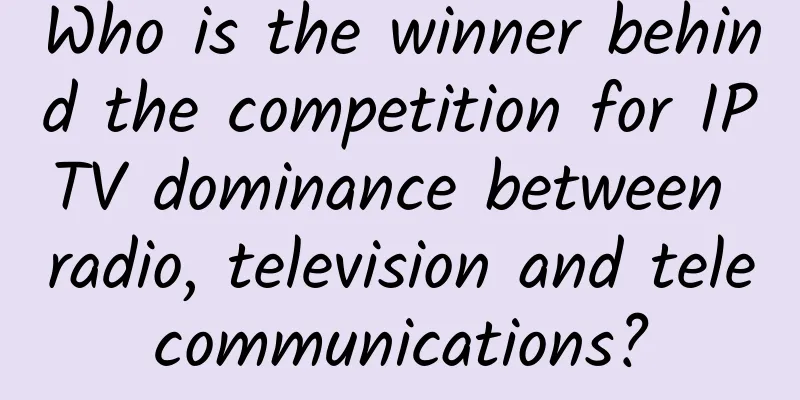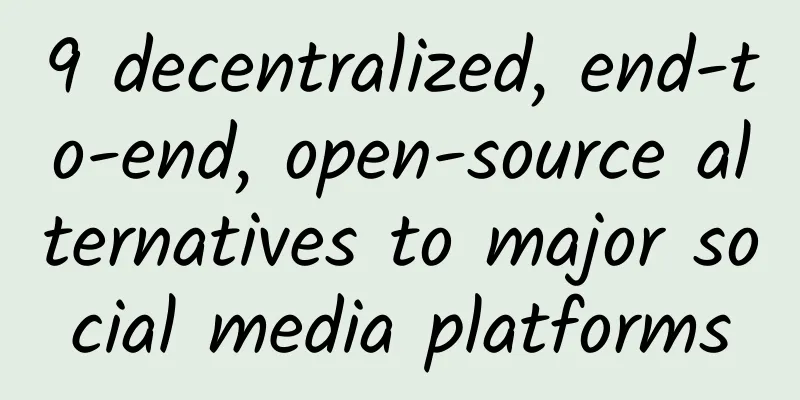Who is the winner behind the competition for IPTV dominance between radio, television and telecommunications?

|
From the time the concept of three-network integration was proposed in 1997 to the present, the battle between radio, television and telecommunications has been going on for almost 20 years. This fight directly led to the stagnation of the development of the entire industry, which not only damaged the interests of telecommunications and radio and television themselves, but also the interests of the majority of users. The only thing that was successful was various video websites. While the giants were busy with other things, the weak small websites have grown into giants and in turn coveted the big screen of the old giants. At present, the only piece of meat left in the entire video market for radio, television and telecommunications is IPTV, and the battle between the two seems to be endless. So, how can both sides achieve real cooperation, avoid unnecessary consumption, and expand the market? I would like to stand in an objective and fair position and try to analyze the future of IPTV and the video industry from the perspective of media communication and technological development. Since 2015, IPTV, which seemed to have been dormant for a long time, has suddenly entered the fast lane, but in fact, it hides huge constraints and hidden dangers. Because both telecommunications and radio and television think they are the party's favorite children, think they can do a good job in the industry, and want to lead the industry themselves. In fact, neither side can truly independently lead IPTV, and neither side can treat the other as a subordinate. To be more precise, neither side has the ability to control it independently. Just like a blind man with very good legs and feet and a lame man with good hearing and eyesight who is good at talking, only when the two of them are truly integrated, with the blind man carrying the lame man and the lame man showing the way to the blind man, can they become a person with super abilities. Otherwise, they can only be two disabled people. Radio and television is the lame man, and telecommunications is the blind man. I remember when I was writing "The End of Television" in 2008, I felt that the problem was with the radio and television people. At that time, China Unicom in a certain province built an IPTV broadcasting room. In the name of law enforcement, the radio and television people in that province smashed the Unicom room with red armbands. I think the radio and television were too short-sighted. They didn't have a two-way transmission channel like telecommunications. They made a digital transformation but it was still a one-way network. They were not enterprising and lacked a sense of partnership. But today, I found that the problem lies with the telecom people again. Because, although the number of IPTV users is growing very fast, the telecom people only hope that the radio and television will take over the IPTV signal and only use the radio and television as a safe signal source. As for the user system, payment system, data system, etc. of IPTV, they are completely controlled by telecom, and the radio and television basically cannot touch or reach them. This mentality is essentially the same as the radio and television people who smashed the machine room with red armbands in the past, and they also lack the sense of cooperation. Indeed, if we use simple logic, the telecom companies provide huge technical systems, users, and bandwidth, while the radio and television companies only provide content, editing, and review, and you take away so much money, the telecom companies are at a big loss. However, if we look at it from the perspective of development and the future trend of video media, this mentality will directly kill the future of the IPTV industry. 1 If we simply inject traditional TV channels and video-on-demand content into IPTV, we are just using Internet technology to make a cable TV that can be watched on demand and replayed, and we are just eating up the rotten meat of cable TV. At its peak, China's cable TV subscription fees were only 60 billion yuan, while the telecommunications industry has an appetite of trillions of yuan. Even if this little bit of meat was snatched away, it would not be enough to eat enough, not to mention that it is impossible to grab it all. 2 Doing IPTV with this mentality is essentially to transfer traditional media to the Internet with inertial thinking, which is not new media. It is bound to fall into the capital gamble of competing for bandwidth, copyright, and terminals. Video websites that survive in this way are still in the ICU of capital. If the nutrient solution of capital is removed, it will be over immediately. Why should we participate in it? 3 Even if the telecommunications industry has sufficient bandwidth advantages, it is not advisable to use this inertial thinking to develop new video media. Traditional television media is a media form based on industrial civilization. Media people cannot truly communicate and interact with the audience. They can only create content that meets the greatest common denominator, use a flooding method to get more people to watch, and then sell these people's eyeballs to advertisers. This form of media is extremely backward. At its peak, its advertising market size in China was only 130 billion yuan, a mere 2 times the size of the cable TV pay-per-view market, which is not enough to fill your stomach. 4 New video media in the Internet environment must move from the pursuit of the greatest common divisor of economies of scale to the gold rush economy that meets personalized needs. That is, through an intelligent transmission system and a personalized two-way interactive system, a new interactive operation form, a new interactive content form, and a new interactive profit form can be opened up. This allows media profits to expand from pure advertising revenue to a humanized payment market and a mind-based marketing market (touching the audience's hearts through content and launching corresponding products to directly complete e-commerce transactions). The market size of the latter two will be much larger than that of the advertising market. 5 This means that it is meaningless for the telecommunications department to simply require the radio and television departments to provide high-quality linear broadcast content. In the traditional linear video market, due to the one-way viewing, the entire market is a "pick-and-choose" consumption of top-quality programs, and the number of high-quality programs that can be produced each year is very limited, only 10 movies, 10 good TV series, and no more than 5 good variety shows. These contents account for the vast majority of the daily video information consumption; and the vast majority of the remaining TV channel content is cultural garbage. The cost of acquiring these top-quality programs is extremely high, and it is impossible to obtain all of them. Even if you do obtain them, the market value is only 60 billion to 130 billion, and it is still shrinking. 6 The only way to break this deadlock is for telecommunications companies to open up their data systems, user systems, and payment systems to radio and television, allowing them to produce two-way interactive programs and interact with the audience. Through humanized payment and mind-based marketing that goes beyond advertising, a trillion-dollar market can be expanded, which will ensure that everyone has a good life in the future. The reason for opening up these important data systems is that the source of information for the two-way interaction of programs is on the radio and television side. With these real-time data systems, radio and television can set up interactive links when making programs and arouse the audience's emotions based on real-time data. Telecom is not the planner or producer of the program, so it cannot set up these interactive links, nor can it interact with the audience in real time. Don't think that popping up a QR code or button on an existing TV program and letting the audience guess and vote is interactive. This is fake interaction that the audience will not buy into. The real interaction must be the interaction between the audience and the host, director, guests and other program creators. 7 Perhaps, telecom people think that we can do this job ourselves. In fact, different trades are like different mountains. Telecom’s strength lies in the construction, management and operation of information channels. Therefore, it is a big mistake to think that as long as we abide by the policies and listen to the party, we can control the content of this platform. Let me give you an example. There are four pictures: a cat coming, a fish tank with goldfish, a cat leaving, and a fish tank without fish. If the order of the four pictures is: a cat comes, a fish tank with goldfish, the cat leaves, and the fish tank is empty, this order shows that the cat ate the goldfish. However, if the order of these four pictures is changed, different permutations and combinations can express many completely different meanings. It may be that the cat came and the fish hid; it may also be that the fish scared the cat away, etc. In other words, you may want to express a positive meaning, but it is entirely possible to express a negative or even malicious meaning. For video, this is the simplest montage editing method, but it is still so difficult to grasp, not to mention that audio and video content also includes text, pictures, voice, as well as more diverse information elements such as color, music, rhythm, etc. The media is a hormone project that mobilizes tens of millions of very complex information factors to disturb the audience's emotions. A small link may cause very positive or negative effects. For individuals and organizations, acquiring this capability requires years of practical training and corresponding system construction, but telecommunications is not the industry that can make a living from this. In conclusion I believe that the development of IPTV should not focus on transferring the operation, content and profit model of traditional TV. That would just be a small share of the leftovers of traditional TV. IPTV should focus on establishing a new interactive video media model and push the video industry to a trillion-dollar scale. This requires that telecommunications and radio and television agencies stop pursuing their own interests and truly cooperate, and even establish a community of interests such as a joint venture, in order to carve out a niche for themselves. Otherwise, focusing only on grabbing those little bits of TV fees is just the last struggle of a group of fishermen before Lop Nur dries up. However, due to environmental changes, Lop Nur will eventually dry up. The author of this article: Wang Mingxuan, WeChat public account: New Media Trends (xmtdqs), focusing on the new media field, insight into industry dynamics, and analysis of new media development trends. Reprinting is prohibited without the author’s permission. As a winner of Toutiao's Qingyun Plan and Baijiahao's Bai+ Plan, the 2019 Baidu Digital Author of the Year, the Baijiahao's Most Popular Author in the Technology Field, the 2019 Sogou Technology and Culture Author, and the 2021 Baijiahao Quarterly Influential Creator, he has won many awards, including the 2013 Sohu Best Industry Media Person, the 2015 China New Media Entrepreneurship Competition Beijing Third Place, the 2015 Guangmang Experience Award, the 2015 China New Media Entrepreneurship Competition Finals Third Place, and the 2018 Baidu Dynamic Annual Powerful Celebrity. |
<<: SoftBank's acquisition of ARM: The former found a cash cow and the latter found a backer
Recommend
Unveiling the 12306 team: Fighting against ticket machines for a year
[[219796]] On February 2, at the China Academy of...
Android 2.3.7 devices are blocked: no Google account logins in September
On August 2, according to The Verge, if your devi...
Aiti Tribe Stories (27): The Growth Diary of a Neighboring Operations Engineer
[51CTO.com original article] The protagonist of t...
The calm before the outbreak? Comprehensive thinking about "Mini Programs"
Since WeChat announced the upcoming release of Mi...
Google's new rules: Android apps must allow users to freely delete accounts and data
Breaking news: Google has begun requiring Android...
Taking shopping mall activities as an example, analyze how to carry out offline activities!
It's really a coincidence that these days, va...
The chive dumplings that Gu Ailing ate during the game became popular! Chives: I am best fried with bacon, followed by fried dried tofu
On the morning of February 14, Gu Ailing appeared...
Chen Xudong: I have repeatedly asked myself what it takes to be successful at Magic Factory
Earlier this month, Zhou Hongyi gave Lenovo's...
The App Store is removing apps on a large scale. Why are chess and card games the focus of scrutiny?
App Store removes large-scale board games from Ap...
Case | oCPC advertising optimization strategy effectively reduces conversion costs
In this case, an advertiser in the education and ...
Re-understanding the R8 compiler from an online question
background In the past period of time, JD Android...
360 Smart Camera Floating Edition 1080P Review: A High-value Home Guardian "Artifact"
You need to install a dashcam when driving, and a...
What is considered a good self-media background? Which one is better, Toutiao or Penguin?
A few days ago, at a "copycat press conferen...
How to write a promotional copy that goes viral with product thinking
When we see a good product review article, we oft...
How do mini programs make money? What are the money-making models of mini programs?
How do mini programs make money? What are the mon...









